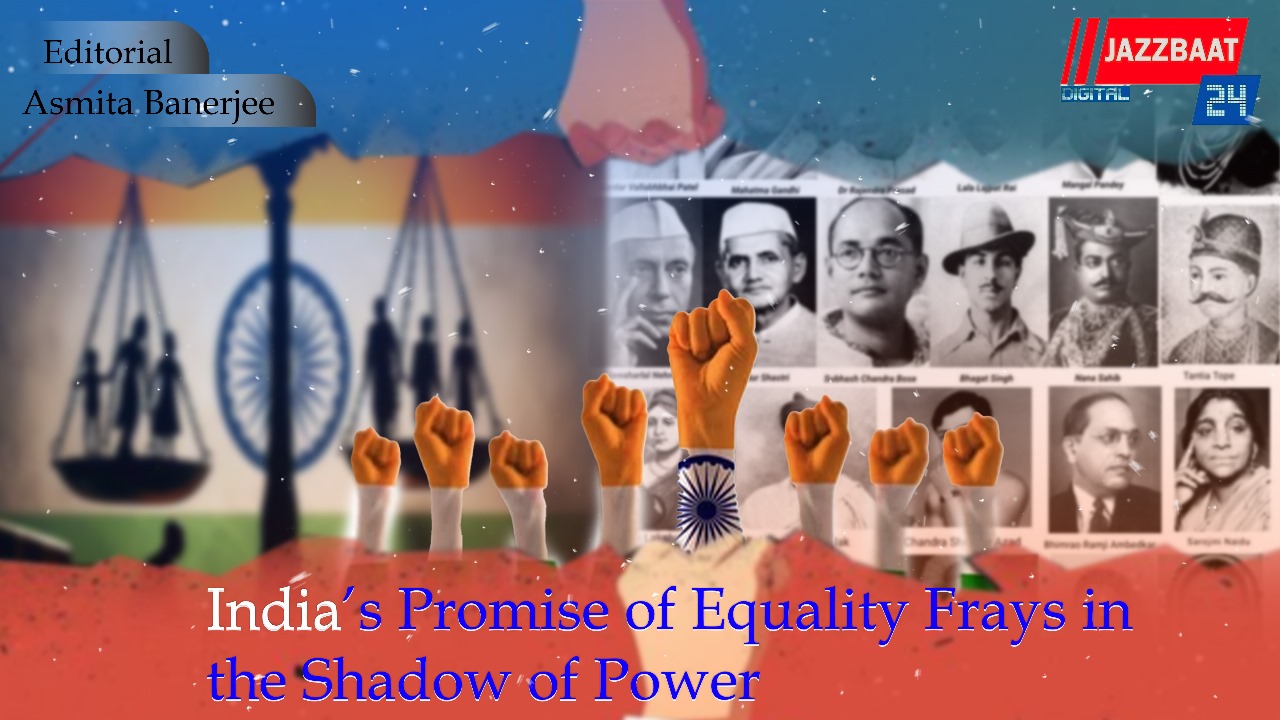
India’s constitutional commitment to equality is under growing threat, as recent events and political discourse lay bare deepening divides between privilege and persecution. The country is witnessing a judicial and political climate where consequences depend not on the nature of the act, but on the identity and ideology of the accused. Those aligned with dominant interests enjoy leeway and protection, while others face the full force of the law. The rule of law appears to have been tailored to safeguard the powerful and intimidate the vulnerable.
The stark contrast between how dissent is handled, depending on the background of the dissenters, has become evident. Instances in which members of minority communities or critics of the ruling order face disproportionate punishment stand as a warning. This selectivity undermines constitutional principles and erodes public trust. Political leaders invoke religion and nationalism to stoke fear and distract from vital issues such as employment, governance, and social welfare. Instead of focusing on real challenges, especially in states like Bihar where unemployment looms large, much of the national conversation is diverted toward imaginary threats and identity-driven campaigns.
Prominent opposition figures are often reduced to defending themselves against charges that are at times less about facts and more about political convenience. False promises and rhetoric have replaced dialogue on substantive policy, further harming faith in the system. Even among marginalized groups, leaders who once stood for empowerment now appear co-opted, prioritizing personal and political survival over the causes they once championed. This erosion of opposition space and genuine debate damages the vibrancy of India’s democracy.
The problem is worsened by a media landscape that amplifies power and rarely challenges it with diligence. Difficult questions are left unasked, and potential abuses of power go unchecked as the media increasingly serves as an echo chamber for the dominant narrative. The absence of robust media scrutiny allows claims of "Hindu Rashtra" and selective justice to flourish, heightening the sense of alienation for minorities and dissenters.
The foundation of democracy is equality. When equality breaks down, democracy steers dangerously close to autocracy. It is imperative for India’s political and judicial actors, as well as its media, to remember that without equal protection and opportunity for all citizens, the nation’s democratic claim is left hollow. The silence of those entrusted with upholding constitutional values may become the gravest threat to India’s future.